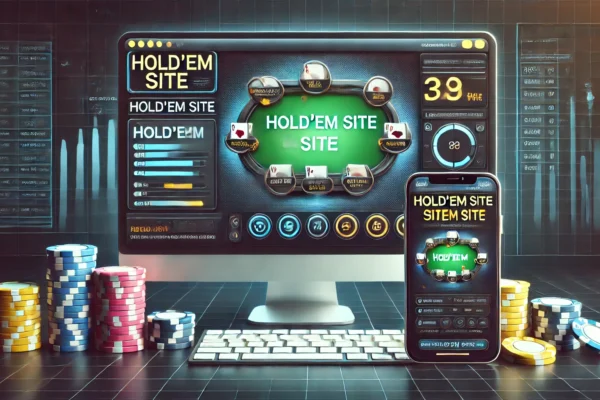Once dismissed as a niche hobby, gaming has evolved into a multibillion-dollar global industry, and at its center lies esports — competitive video gaming that attracts millions of viewers worldwide. What was once viewed as leisure is now recognized as a legitimate career path, and educational institutions are taking notice. Across the globe, schools and universities are integrating esports into their programs, offering students opportunities to learn, compete, and build professional futures in the gaming ecosystem. The fusion of esports and education is creating a new generation of digitally skilled, creative professionals ready for the world of tomorrow.Visit (무료슬롯) for more details.
The Rise of Esports as a Global Phenomenon
Esports has grown rapidly over the past decade, transforming from small LAN tournaments to massive international events with million-dollar prize pools. Games like League of Legends, Valorant, and Counter-Strike 2 have become cultural landmarks, attracting audiences comparable to traditional sports. The rise of streaming platforms like Twitch and YouTube Gaming has amplified this growth, allowing players to reach global audiences instantly. This surge has not only changed how people view gaming but also how they see its potential as a career. Competitive gaming now offers roles beyond playing — from coaching and event management to marketing and game design.
Esports Enters the Classroom
As esports gained mainstream recognition, educational institutions began to see its value. Universities in the United States, the UK, South Korea, and beyond have started offering dedicated esports programs, scholarships, and degrees. These courses combine gaming with traditional disciplines such as business, technology, and media studies. Students learn about team dynamics, broadcast production, tournament organization, and even the psychology of competition. The goal isn’t just to train professional players — it’s to prepare students for the entire esports industry, which demands a wide range of technical and creative skills.
Developing Transferable Skills
Esports education isn’t only about gaming; it’s about developing skills that apply across industries. Competitive gaming teaches strategic thinking, communication, and teamwork — the same skills valued in business and leadership. Players learn to handle pressure, adapt to changing situations, and analyze complex problems quickly. For those studying behind the scenes, managing esports events requires logistics, marketing, and data analysis expertise. The combination of digital literacy and soft skills makes esports education an ideal model for preparing students for careers in the modern digital economy.
Scholarships and Career Opportunities
Esports scholarships are now becoming as common as athletic scholarships in many regions. Colleges recruit talented players to represent their teams in national and international competitions. For students, this means the ability to pursue both education and competitive gaming simultaneously. Beyond scholarships, the esports industry offers numerous career opportunities. Game publishers, tournament organizers, content creators, and production companies all require skilled professionals. From shoutcasters and analysts to software developers and brand managers, the esports ecosystem is expanding rapidly — and educational pathways are catching up.
The Role of Technology and Infrastructure
A successful esports education system relies heavily on technology. Schools and universities are investing in dedicated gaming arenas, high-speed internet, and cutting-edge hardware. Some institutions have built entire facilities designed for esports training and broadcasting, mirroring professional environments. These spaces foster collaboration, innovation, and community among students. They also help bridge the gap between amateur play and professional competition, giving students firsthand experience in how the esports industry operates. The focus is not just on playing games but understanding the technology that powers them.
Challenges and Misconceptions
Despite its progress, esports education still faces skepticism. Some critics argue that gaming distracts from traditional learning or lacks real-world value. However, research increasingly shows that structured esports programs can enhance cognitive skills, motivation, and engagement. The challenge lies in ensuring that these programs promote balance — integrating health, time management, and academic performance. Another challenge is accessibility; not all schools have the resources to invest in esports facilities. Bridging that gap will be essential to ensure equal opportunities for students interested in digital careers.
Esports as a Gateway to STEM and Creative Fields
Interestingly, esports often sparks interest in STEM (science, technology, engineering, and mathematics) subjects. Students intrigued by the technical side of gaming often pursue careers in computer science, data analysis, or software engineering. Others gravitate toward media production, design, or storytelling — skills crucial to the creative industries. Esports acts as a bridge between play and profession, demonstrating that passion for gaming can evolve into meaningful, sustainable careers. This connection is helping educators reimagine how to engage students in subjects once considered inaccessible or boring.
The Future of Esports Education
The future of esports in education looks promising. As technology continues to advance, virtual classrooms and cloud-based gaming platforms will make esports programs even more accessible. Global competitions between schools could become as common as intercollegiate sports. Partnerships between universities, game publishers, and tech companies are already shaping curricula that prepare students for emerging digital fields. In time, esports could become a cornerstone of modern education — a platform that teaches not just how to play, but how to innovate, lead, and create in the digital age.Visit (무료슬롯) for more details.
Conclusion
The integration of esports and education marks a major cultural and technological shift. Gaming is no longer seen as a distraction from learning; it’s becoming a dynamic tool for teaching. Through structured programs, scholarships, and industry partnerships, esports is opening doors for students to turn their passion into purpose. It encourages collaboration, critical thinking, and creativity — the very qualities needed in the digital workforce. As esports continues to evolve, so too will education, adapting to a generation that learns, competes, and connects through play. The classroom of the future isn’t just physical — it’s interactive, digital, and powered by the spirit of gaming.



